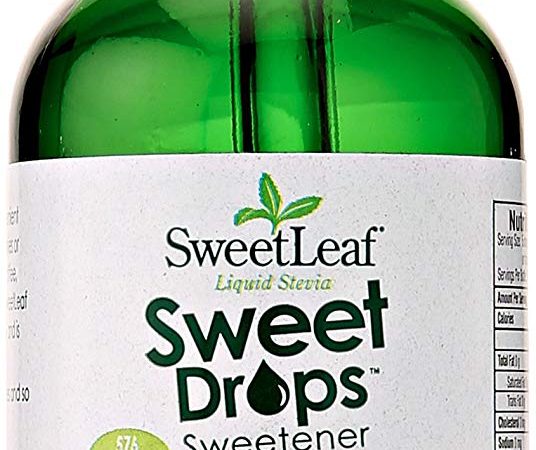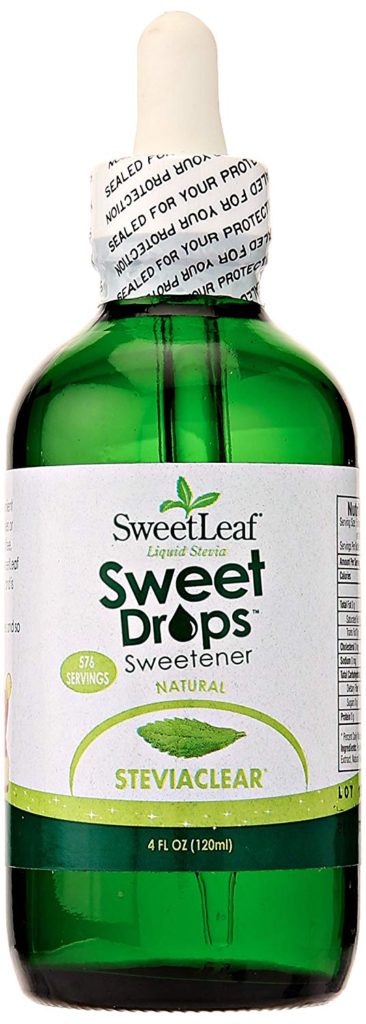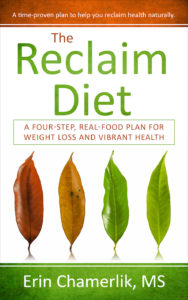
Is Stevia healthy? Does it cause cravings? Does it cause infertility?
What do the studies show about stevia?
Pretty much there are only a few rat studies.
Stevia is not typically going to increase the desire for more sweets, but if for you it does, then don’t eat it.
We are all different, and some people find that stevia has benefits for their blood sugar, they use it sparingly and enjoy the ability to add it to something like the fat bombs.
Other people may need to avoid stevia because tasting anything sweet brings on the desire for more sweet.
If one uses Stevia – make it the liquid extract, not the white powder which is highly processed.
For people with blood sugar dysregulation or diabetes, it is a better option than other sweeteners.
Stevia is better than artificial sweeteners.
Use it sparingly.
A drop is powerful, but some people are putting several droppers in a tea, that would not be good.
The Experts Weigh in on Stevia
I follow Sarah Ballantyne, PhD on many of these topics that can go one way or the other.
She wrote,
“Take-Home Message
Occasional consumption of small amounts of stevia likely has little to no impact on general health.
Unfortunately, there really is a shortage of human studies evaluating the full spectrum of possible negative effects of stevia and no human studies exploring the potential effects on fertility!
In the case of stevia, caution is the better part of valor, especially for anyone struggling with fertility issues, hormone imbalances, or chronic disease.”
((The rat study that even caused anyone to be connecting stevia with hormone issues, showed that a human equivalent of eating 24 packets of stevia a day could be harmful. I don’t want you to consume any packets, but nobody is doing 24 a day))
Another real food thought leader, Chris Kresser, has looked at the stevia issue too and concluded:
“Although I’ve seen good points raised by both sides, the majority of the evidence indicates that stevia, used in reasonable quantities, is a harmless (and possibly beneficial) natural sweetener.”
Dr Mercola wrote:
“Its Side Effects Are Practically Non-Existent
While stevia may be sweet, it won’t pose any danger to your health. In Japan, stevia products have been consumed for decades and there are no reported side effects.”
Dr. Daniel Mowrey, an expert in herbal medicine who extensively studied the plant, reports that:
“Few substances have ever yielded such consistently negative results in toxicity trials as have stevia. Almost every toxicity test imaginable has been performed on stevia extract (concentrate) or stevioside at one time or another. The results are always negative. No abnormalities in weight change, food intake, cell or membrane characteristics, enzyme and substrate utilization, or chromosome characteristics. No cancer, no birth defects, no acute and no chronic untoward effects. Nothing.”
Which Sweeteners are Good?
We get mixed messages about healthy sweeteners:
honey, coconut sugar, stevia, maple syrup, and the list goes on and on.
Never Use These Sweeteners
- Agave – Agave is highly processed and is very high in fructose – learn more here.
- Aspartame (Equal)
- Saccharin (Sweet n Low)
- Stevia that is white/bleached (Truvia, Sun Crystals)
- Sucralose (Splenda)
- Tagatose
Use These Sweeteners Sparingly:
Pure Organic Monk (Luo Han Guo)
Recommended
-
Dandelion for Liver Support and Health BenefitsJuly 20th, 2024
-
Modified Citrus PectinJuly 11th, 2024
-
Bentonite Clay Mask for Face and ArmpitsJuly 8th, 2024
-
Two Supplements for Erectile DysfunctionJune 30th, 2024









